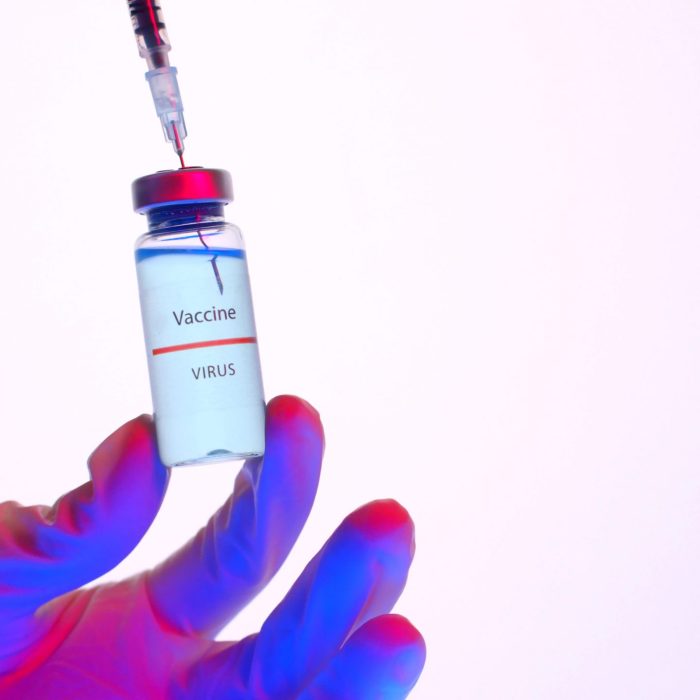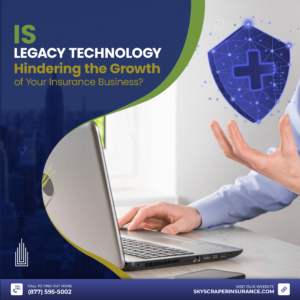Insurers must consider the implications of both state and federal laws when deciding whether to implement a mandatory vaccination policy.
The availability of more vaccines raises some new questions for employers concerned about keeping employees and customers safe.
Since the U.S. Food and Drug Administration (FDA) has now issued emergency-use authorization (EUA) for three COVID-19 vaccines, there is an expectation that vaccines should be more readily available to a larger part of the general population. Many employers, brokers and insurers are watching this development with keen interest and in the hope that increased employee vaccinations will help return their businesses to some sort of normalcy.
While many individuals are eager to get vaccinated, recent surveys conducted by the U.S. Census Bureau reveal that a significant portion of the population reports that they may not get vaccinated. Many employers are contemplating whether to implement a policy mandating that their employees get a COVID-19 vaccination. Employers in New Jersey must understand there are significant risks to implementing such a policy which could, ultimately, lead to costly litigation.
Federal vs. state laws
The decision of whether to implement a mandatory COVID-19 vaccination policy implicates issues of both federal and state law. At the federal level, employers received good news in the form of guidance from the United States Equal Employment Opportunity Commission (EEOC), which suggests that employers may be able to implement a mandatory vaccination policy, subject to certain limitations. The EEOC is charged, in part, with enforcing the Americans with Disabilities Act (ADA) and Title VII of the Civil Rights Act of 1964 (Title VII). The EEOC guidance provides that, under the ADA and Title VII, employers have an obligation to reasonably accommodate employees who object to being vaccinated based upon the employee’s disability or sincerely held religious beliefs. The New Jersey Law Against Discrimination (NJLAD) also imposes such an obligation on employers. One form of accommodation could be to exempt the employee from the vaccination requirement and allow the employee to work remotely from home.
Even if an employer implements a mandatory vaccination policy that complies with its obligations to reasonably accommodate its employees’ disabilities and religious beliefs, the EEOC guidance does not provide clear approval to immediately move forward with a mandatory vaccination policy. As of the time of publication of this article, the three COVID-19 vaccines approved for use in the United States are only available under EUA granted by the FDA. The EEOC guidance makes clear that EUA is different than approval under FDA vaccine licensure. Under the EUA approval, the FDA is obligated to inform recipients of the vaccine that they have the option to accept or refuse the vaccine. This information is typically conveyed in a patient fact sheet provided to the individual receiving the vaccine.
Employers looking to implement a policy that requires employees to get a vaccine that is approved as EUA, would be acting contrary to the FDA fact sheet, which says the employee has the option to refuse the vaccine. This could potentially give rise to a claim under the New Jersey Conscientious Employee Protection Act (CEPA), which is commonly known as New Jersey’s “whistleblower law.” Under CEPA, an employee can make out a claim of retaliation if they object to a policy that the employee reasonably believes is a violation of a rule or regulation. An employee could become a whistleblower under CEPA by claiming a mandatory vaccination policy violates the FDA rule that the vaccines are only approved for EUA and subject to the advisement that the recipient may refuse the vaccination.
Once a vaccine is approved under the FDA vaccine licensure process, then the EEOC guidance suggests that federal law would enable an employer to implement a mandatory vaccination policy. However, for employers in New Jersey there are other state law considerations that make the issue of implementing such a policy more complicated. At the crux of these state law considerations is the fact that New Jersey recognizes that employees have certain rights to privacy in the workplace.
Protecting workplace privacy
In Hennessey v. Coastal Eagle Point Oil Company, 129 N.J. 81 (1992), the Supreme Court of New Jersey addressed a terminated employee’s claim that his private employer’s random drug testing policy violated his right to privacy in the workplace. The Supreme Court acknowledged the existence of a common law tort of intrusion on seclusion and found that “one who intentionally intrudes, physically or otherwise, upon the solitude or seclusion of another or his private affairs or concerns, is subject to liability to the other for invasion of his privacy, if the intrusion would be highly offensive to a reasonable person.” The Hennessey court also cited with approval to an Appellate Division decision for the proposition that “The thrust of this aspect of the tort is that a person’s private, personal affairs should not be pried into.”
The Supreme Court in Hennessey ultimately did not decide whether an employer’s random urine testing policy violated an employee’s common law privacy rights because the issue was not briefed or argued before the court. Nevertheless, based upon Hennessey and other legal precedent, an employer that implements a mandatory vaccination policy is at risk of a claim that such a policy violates the employee’s common law right to privacy in the workplace. Given the potential benefits of having employees vaccinated, an employer might be willing to undertake the risk of implementing such a policy; however, that begs the question of what does the employer do with employees who refuse to abide by the mandatory vaccination policy? Most employers would likely say that the next logical step would be termination of employment or other adverse action such as a demotion, transfer or reduction of work hours. What Hennessey and other legal precedent demonstrate is that taking such actions could expose the employer to a significant risk of being sued for wrongful termination or retaliation.
In Hennessey the focus of the court was on the plaintiff/former employee’s claims that his termination of employment based upon a random drug test constituted a wrongful termination in violation of “a clear mandate of public policy.” This type of wrongful termination claim was first recognized by the Supreme Court in Pierce v. Ortho Pharmaceutical Corp., 84 N.J. 58 (1980). In Hennessey, the Supreme Court determined that, based upon employee rights to privacy arising under the common law and under the New Jersey Constitution, a random drug testing policy could constitute a breach of public policy.
Next, the Supreme Court had to determine whether there was a “clear mandate of public policy” as required by Pierce. In making that determination, the Hennessey court recognized that, although an employee might have a right to be protected from intrusions of privacy, the court also had to consider competing public interests (in that case the risk of public injury presented by an employee in a safety-sensitive position being under the influence of drugs while at work). The Supreme Court established a balancing test and determined that to constitute a “clear mandate of public policy” supporting a wrongful termination claim, the employee’s individual right to privacy must outweigh the competing public safety interests.
In Hennessey, the Supreme Court determined that the public policy supporting safety outweighed the plaintiff’s individual privacy rights and upheld the dismissal of the Pierce wrongful termination claim. What is unknown currently is how a court might weigh the competing interests implicated in a COVID-19 mandatory vaccination policy implemented by a private employer. On the one hand, many probably would say that forcing an employee to get a vaccine is even more of an intrusion into an employee’s privacy than being forced to provide a urine sample for a drug test. On the other hand, COVID-19 presents public health risks that have not been seen in generations. Further complicating matters is that the risks associated with COVID-19 are likely to decrease as more of the population voluntarily gets vaccinated and as the COVID-19 numbers improve, which could result in a lessening of the public interest in a mandatory vaccination policy.
Can employers mandate vaccines?
CEPA also codifies the Pierce doctrine of preventing retaliation against employees who object to practices that are incompatible with a clear mandate of public policy concerning the public health, safety, or welfare. As such, even if employees are only required to take a COVID-19 vaccine that has received FDA vaccine licensure (i.e., not a vaccine with only EUA approval from the FDA), there is a risk of a CEPA whistleblower claim should an employee be terminated or have another adverse action taken against him/her for refusing to get vaccinated.
In 2020, New Jersey enacted a law that mandated flu vaccinations for employees of certain health-care facilities. As of the current date, no such legislation has been passed with regard to COVID-19. In the absence of such legislation, the questions of whether an employer’s mandatory COVID-19 vaccination policy can give rise to employee claims for violation of common law privacy rights, wrongful termination and retaliation will likely be answered through future litigation.
Given the significant health risks associated with COVID-19 and based upon the decision in Hennessey, it is very possible that an employer will be able to successfully defend such claims by showing that any employee privacy rights are outweighed by the competing public health and safety concerns. Of course, the defendant employer in Hennessey only achieved its success after much time and effort (and presumably great financial expense) and after multiple appeals that culminated in a final decision being rendered by the highest court in the state of New Jersey. The question for employers now is whether the benefits of a mandatory COVID-19 vaccination policy outweigh the risk of possibly being the test case on whether such a policy is lawful in New Jersey. For many employers, the answer is likely “No.”








